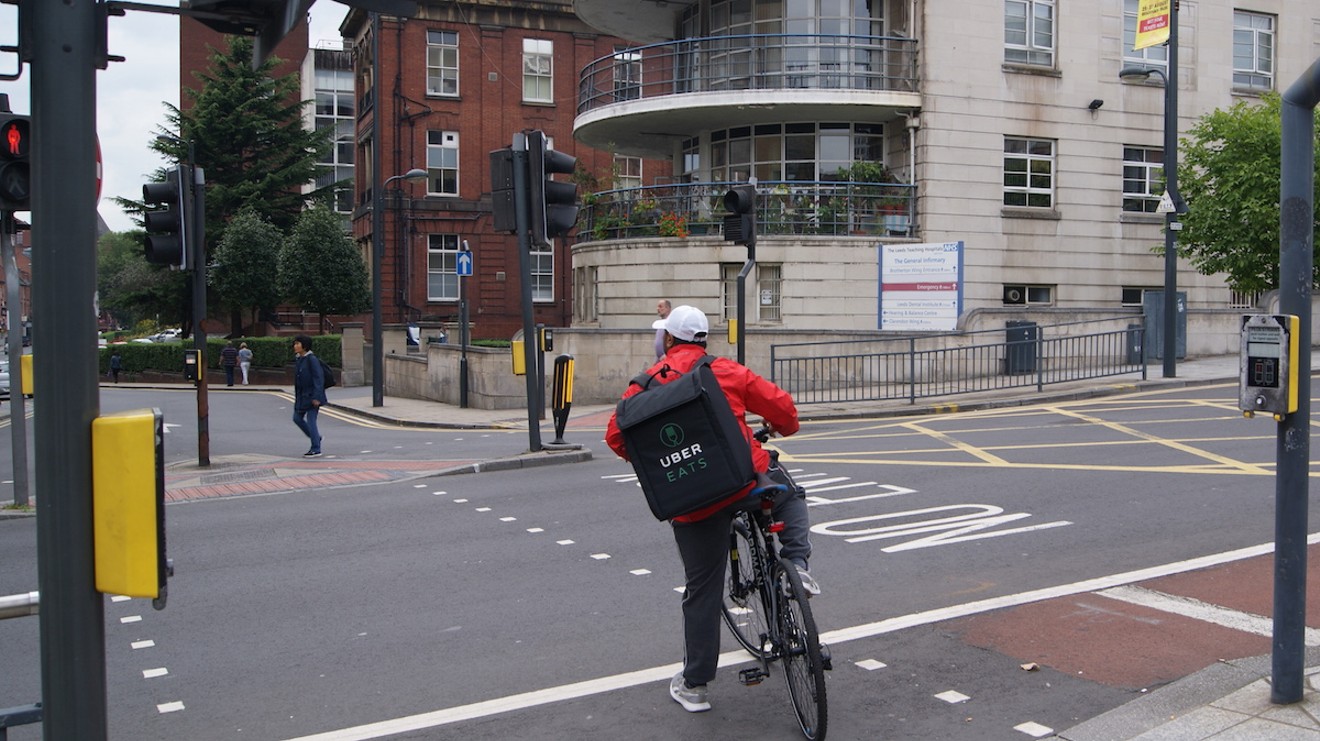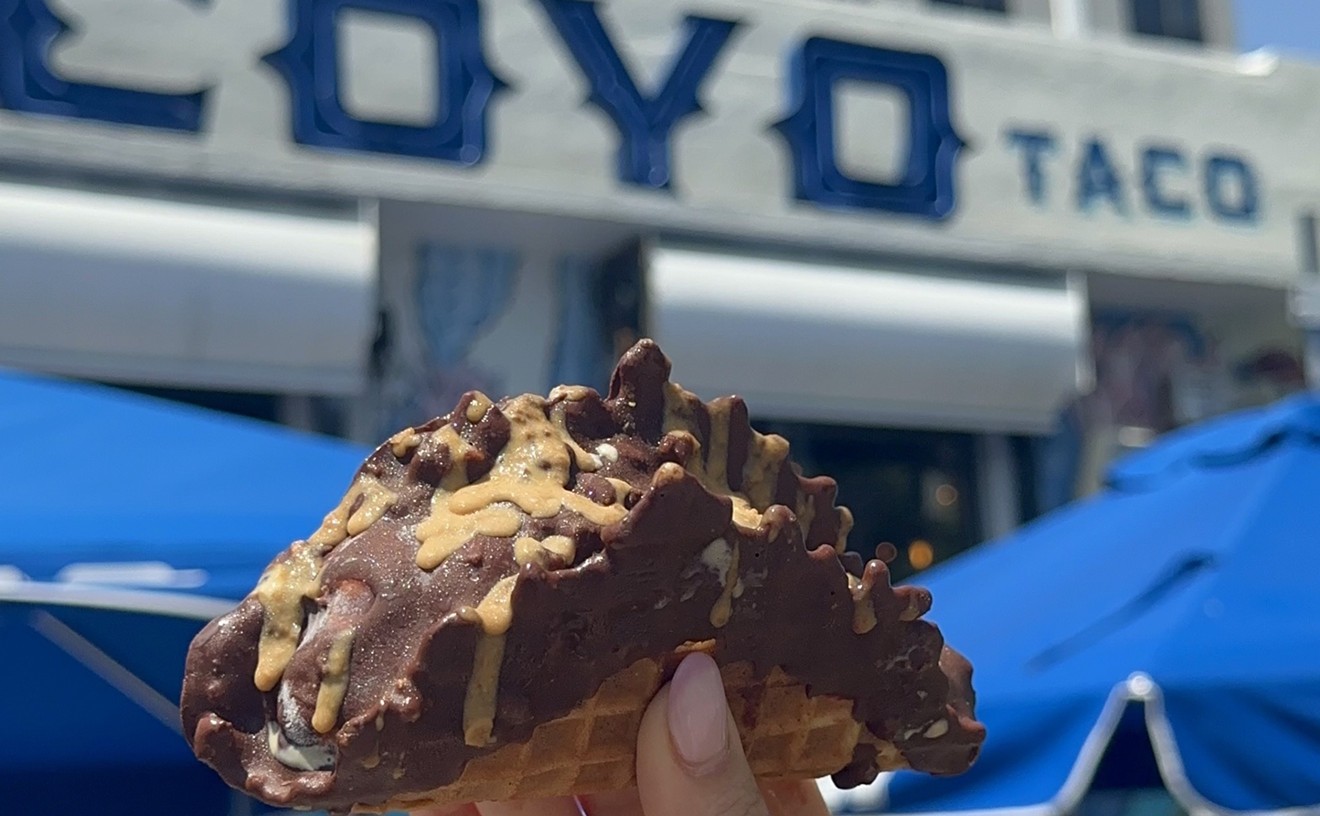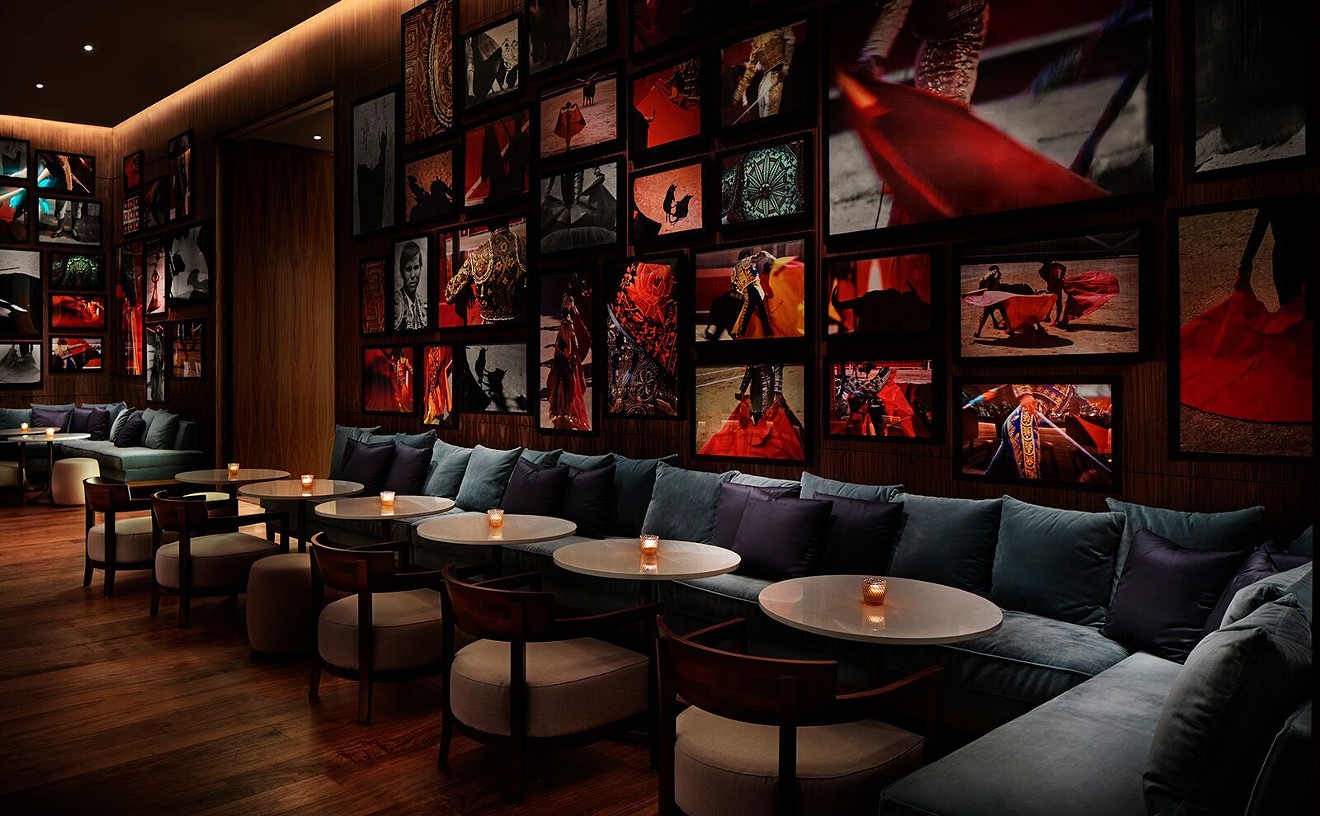Over the past two years, the mobile apps that put almost any dish a couch-bound eater could want within a moderate wait has also put Miami restaurants in a pickle.
No longer is delivery the purview of pizza, Chinese, and South Beach's Big Pink. Now you can dispatch a Postmates driver to fetch you croquetas from Enriqueta's or Islas Canarias. Amazon Restaurants will bring you a pizza far superior to Domino's, and in the case that you're too hung-over to face sunlight, Uber Eats will deliver you anything from an egg McMuffin to a $9 avocado toast from Michael Schwartz's Ella Cafe in the Design District.
Though at face value it all seems good — you don't need to move, and traditional restaurants can earn money without even having to get you through the door — some places are finding results uneven.
A number of delivery companies operate in South Florida, but none seems as dominant as Uber Eats. The ridesharing company that started with on-demand black cars in San Francisco launched its food delivery service in South Florida in the summer of 2016 and offers delivery from 1,000 restaurants, according to Uber’s Florida spokesman, Javi Correoso. The number of delivery drivers could top 10,000. Yet that service also comes at a hefty price. From some restaurants, the company takes a 33 percent cut. And though other delivery services, such as Postmates, Amazon, and GrubHub, take a smaller percentage, many restaurant owners say Uber’s market share makes its service a must-have, whatever the cost.
“They’re billionaires for a reason; it’s a great idea, but it’s off of our backs,” says Richard Hales, who owns Sakaya Kitchen, Blackbrick, and Bird & Bone.
Yet the delivery service was also critical when Zika decimated foot traffic in Wynwood and midtown and when Hales put Blackbrick, his upscale Chinese concept, on the service.
"Our business went up noticeably, about 20 percent, and our in-house business was going up," he says. "I'm scared to remove it because I don’t know what’s going to happen."
Yet the "excessive" 30 percent fee Uber takes off the top of delivery orders, in addition to charging customers $4.99, makes the service more a marketing tool for the number of customers it exposes to restaurants rather than the amount of money it helps restaurants earn.
“For me, Uber Eats is a necessary evil,” says Aniece Meinhold of Phuc Yea and the recently launched delivery-only concept Pho Mi. “When you look at dining trends, you see people want convenience and value. What does Uber provide? It provides convenience. Does it provide value? I don’t know.”
The purpose of Pho Mi, which offers weekday delivery during lunchtime, is twofold. Meinhold and partner Cesar Zapata had tried a Vietnamese soup and sandwich lunch service shortly after opening their restaurant but found it a costly, unpredictable endeavor.
“Whether you serve ten people or 60 people, you have to staff for 60, and I was getting killed,” Meinhold says. After she halted lunch, customers began complaining about the dearth of soup and sandwiches. Pho Mi could provide a happy medium where Vietnamese food fiends could get their fix, while Zapata and Meinhold find a way to capitalize on a kitchen that would otherwise sit dark during the day.
That kind of opportunity is what Uber says it provides to chefs and restaurateurs.
"Uber Eats effectively expands the capacity and reach of our restaurant partners to be able to serve a whole new network of potential customers," Correoso wrote in an email while noting that signing onto Uber Eats allows restaurants to enter delivery with minimal upfront investment.
And not everybody bemoans forking over a third of delivery checks to the company.
"We do thousands, thousands of dollars a month with Uber Eats," says Blue Collar and Mignonette chef and owner Danny Serfer. The service seems to work best at the former, where his homestyle/fancy diner cuisine translates into delivery well. "Even if somebody doesn’t order from us, there are how many millions of eyes on the app and people know we exist."
Even those who aren't as confident in the apps' ability to drive the bottom line acknowledge its power.
Beloved for his orgiastic, playful takes on nonkosher Jewish food, Josh Marcus is a restless cook who likes to experiment with different cuisines. In the spring of 2016, he launched Barbacoa, a Mexican barbecue joint that plied braised lamb belly, charred octopus, and spicy ribs marinated in sour orange, habanero, and guajillo peppers, rubbed with pastrami spice, and smoked. Everything came wrapped in butcher paper, as it did in Texas’ nascent barbecue joints. Only here, the proteins were packed up with grilled tortillas, cilantro, and crisp vegetables.
Early last summer, Marcus put Josh's Deli, Barbacoa, and Bad Chinese (think orange chicken, roast pork fried rice, and skirt steak with broccoli) online in hopes that his small kitchen would churn out food and rake in money. The results were mixed. Barbacoa and Bad Chinese were easy to execute because many of the ingredients overlapped. But it also stretched his deli too thin, and by the end, he was spending long nights on his feet going crazy for a few hundred bucks. Moreover, dealing with drivers was a constant hassle.
“Guys would be sitting right outside the restaurant for 20 minutes before picking up an order, then come in stinking like weed,” Marcus says. “I had one experience where a guy came in, picked up a $50 order, canceled the order, quit Uber, and kept the food.”
Despite the challenges, he says he'd even consider doing it again, and paying that 30 percent fee, once the business tapers off as the weather heats up. "Summer is that bad," Marcus says.
[
{
"name": "Air - MediumRectangle - Inline Content - Mobile Display Size",
"component": "19274298",
"insertPoint": "2",
"requiredCountToDisplay": "2"
},{
"name": "Editor Picks",
"component": "17482312",
"insertPoint": "4",
"requiredCountToDisplay": "1"
},{
"name": "Inline Links",
"component": "18711090",
"insertPoint": "8th",
"startingPoint": 8,
"requiredCountToDisplay": "7",
"maxInsertions": 25
},{
"name": "Air - MediumRectangle - Combo - Inline Content",
"component": "17482310",
"insertPoint": "8th",
"startingPoint": 8,
"requiredCountToDisplay": "7",
"maxInsertions": 25
},{
"name": "Inline Links",
"component": "18711090",
"insertPoint": "8th",
"startingPoint": 12,
"requiredCountToDisplay": "11",
"maxInsertions": 25
},{
"name": "Air - Leaderboard Tower - Combo - Inline Content",
"component": "17482313",
"insertPoint": "8th",
"startingPoint": 12,
"requiredCountToDisplay": "11",
"maxInsertions": 25
}
]












